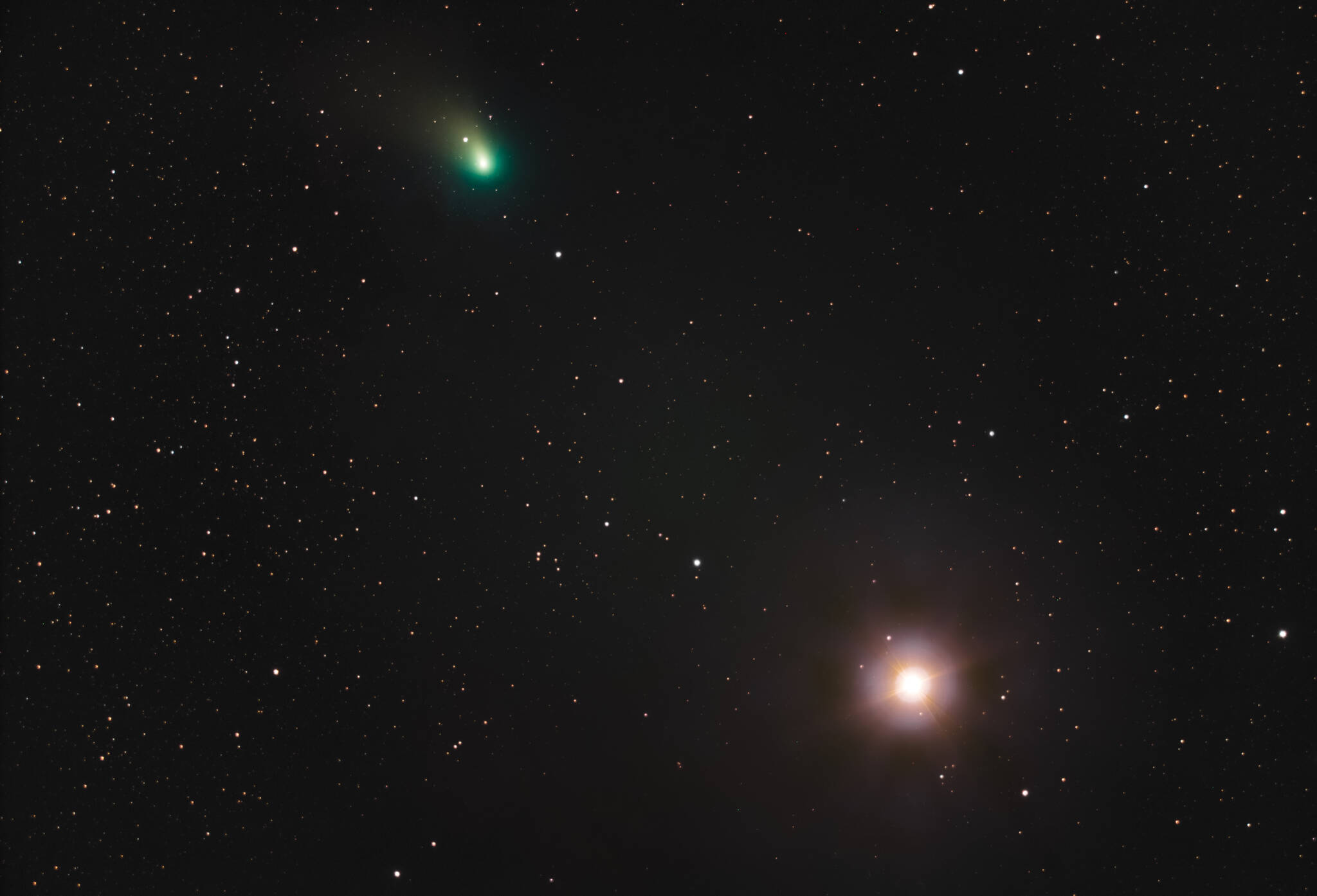About five years ago, the projector in the John Rudolph Planetarium on Bainbridge Island stopped working and ended the popular weekly shows that drew visitors and budding astronomers to the Ritchie Observatory in Battle Point Park.
Then COVID kept stargazers away and forced them to learn about astronomy through Zoom calls on small screens.
After a yearlong fundraising effort aimed at the stars, the Battle Point Astronomical Association has purchased a new planetarium projector and will resume presentations for the public March 11.
Chief astronomer Cole Rees said the new Digitarium Theta Plus projector will kick off the next phase of an enhanced planetarium experience. “It’s not an IMAX movie, but it is way better than it used to be. It’s impressive, and we’re excited to take it into the future because this projector is fantastic.”
Rees said the planetarium had been operating with a “hodgepodge” of equipment for some time. “We want to go from a working planetarium to a planetarium theater doing shows three to four nights a week.”
Feature-length shows last about 50 minutes, beginning with a 20-minute presentation to orient viewers to the celestial terrain and a 25- to 45-minute video discussing a featured sky culture. The association hopes to share sky cultures from a different perspective with a data set of constellation lines, names, art, boundaries, star names and stories that other cultures have used for thousands of years.
“There’s so much history to be learned from it,” said Rees, who wants to bring science, culture and history together for people to have conversations in a unique space. “All we have to do is turn the projector on and take ourselves back to that time in history when we can see the world exactly how the Native Americans did or when the Polynesians were traversing across the Pacific Ocean. This is really a time capsule.”
The cost for the upgrade is $60,000, including the projector, a software license and a rigid dome. The group raised $47,000 with grants from the Rotary Club, BI Parks & Trails Foundation, Bainbridge Community Foundation, and private donors. They purchased the projector and have spent the last couple of weeks installing and testing the new system.
The association is eager to resume in-person shows to continue the outreach and educational programs they have been doing for more than 30 years to inspire the next generation of astronomers.
It was through a BPAA astronomy event at Ordway Elementary School years ago that Rees crawled into an inflatable planetarium that piqued his interest and love for astronomy. “I crawled into that igloo to see the night sky for the first time, and it was unforgettable… It still has a strong impact on me and is one of the reasons I show up here every day,” Rees said.
Planetarium shows are free for up to 20 people on the second Saturday of each month, with a suggested donation of $5 per person. BPAA is still seeking $13,000 in donations to replace the old cloth planetarium dome. BPAA also offers: educational classes and lectures, stargazing parties, hands-on time with telescopes, access to the Ritchie Telescope and birthday parties in the planetarium. For details, visit bpastro.org
Two Bainbridge High School graduates from the class of 2016 with experience in the planetarium and the observatory are now studying astrophysics: Natalie Allen at Johns Hopkins University and Michaela Leung at the University of California at Riverside. Both women are authors on research papers using data from the James Webb Space Telescope.



